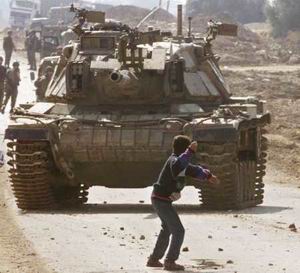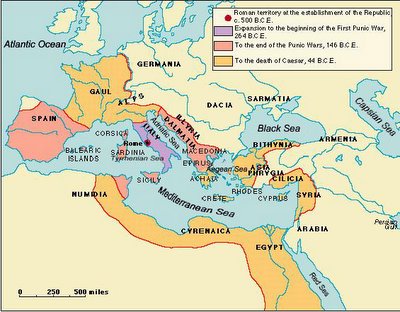Roman Political Institutions part 1 Polybius
Polybius in the second century BC praised the Roman constution for its balance of monarchy, aristocracy and democracy. Theoretically in the Roman state the people were sovereign.
There were three organs of state; magistrates,
assemblies and senate
Magistrates were from the aristocracy –
Cursus honorumThere were a series of offices which were compulsory with clearly defined age limits giving a range of experiences; Military service,
Quaestor (late 20s, early 30s),
Tribune (plebeian only, looked after the people’s interests),
Aedile (organised the games),
Praetor (late 30s, early 40s),
Consul (42 was earliest age you could take this office, 2 elected every year) -> censor (important office in that they sold public contracts and also kept the lists of the citizens, senate and equestrians – can become a very political office)
The Significance:
- Elected by the people - stand for office in person in Rome and as a private citizen (e.g. you cannot stand for consulship while holding the praetorship)
- Stratified by age – senior offices held by the senior (in age) politicians of Rome, imbues you with all the traditions of Rome by going through the Cursus Honorum. Government a conservative institution, no need for hot heads, experience key.
- Competitive (with contempories) higher offices: money, clientele and support needed from the people and the aristocracy. Senior offices dominated by same families again and again e.g. the Metelli
- Pyramidal structure -> increase in number of lower offices e.g. Number of quaestors increased between 133 and 44BC - 12->20->40, e.g. by Sulla, Caesar (for administrative purposes) only increased competition for higher offices
- rigid structure totally applied:
Occasionally individuals get around the system
-> Scipio Aemilianus was elected consul although quaestor and in absentia (147 BC) – elected by the people to fight against Carthage
-> Pompey’s 1st command to fight against pirates and Mithridates -> held consulship without a colleague (exceptional circumstances require exception measures)
-> Marius was consul 7 times (5 consecutively – to fight the Germanic tribes)
These were not illegal seizures of power but were formal decisions of the people of Rome
These can be considered illegal seizes of power:
-> Sulla
-> Marius
->
Cinna
The Senate (political function)1. Permanent council comprising magistrates 300>600 (Sulla)> 900+ (Caesar): ad lection -> from Sulla all quaestors automatically joined senate
2. Contempories saw senate as the most important organ of state - few formal powers: ‘consultative and advisory’. Even powers of finance and 'foreign policy' subject to ratification by the people
The People
1. Sovereign
2. No political offices
3. Decisions made by 3 assemblies
- Comitia curiata (30)
- Comitia tributa (35) > 30 rural tribes (aristocracy), 4 urban tribes, 1 Latin tribe
- Comitia centuriata (193)
- Democratic? – omits women, slaves and foreigners, senate has an edge over every process
-> advice of the senate
-> no rights of prior debate at meeting (although informal meetings took place – contio)
-> Group voting
-> Ranking on economic grounds
-> Order of voting, stopped when majority reached
-> Personal appearance in Rome
-> Dependent on who turned up and issues involved
>< Laws vs. bribery, use of force, secrete ballot etc.
4. Concilium plebis and tribunes: based on tribal organisation
- convened by tribunes
- alternative voting system
- use in controversial legislation
-> Democratic element?
- Tribunes brought an element of ‘accountability’ to gov thro’ legislation
-> courts for provincial corruption equites, courts of enquiry to examine action of individual






































